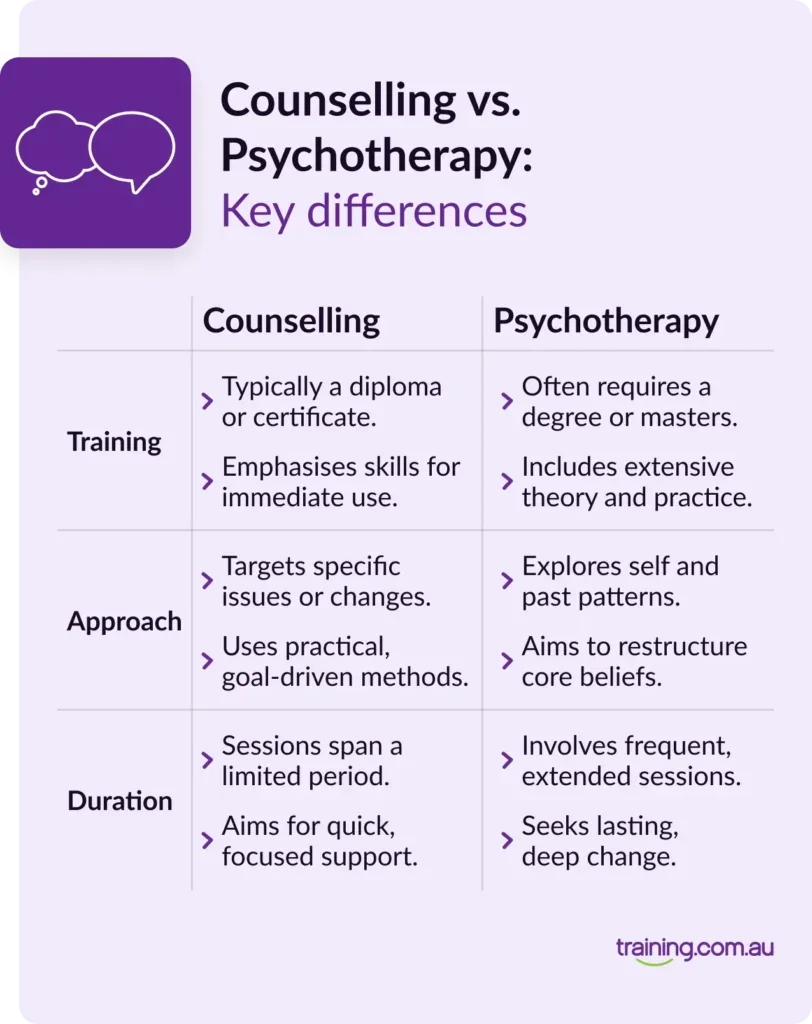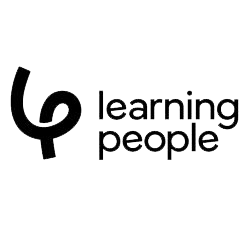- Introducing Dan
- What’s the difference between a counsellor and a psychotherapist?
- A typical day as a counsellor isn’t really a ‘typical day’. It varies
- You’ll employ empathy and curiosity every day
- It’s personally and professionally rewarding
- Your empathy will be both a blessing and a challenge in this field
- There will be parts of the job you wish you didn’t have to do
- The reality is that not every counsellor will work in private practice
- Browse Counselling Results
“It Can Be Heartbreaking”: Raw Insights Into Becoming a Counsellor

- Introducing Dan
- What’s the difference between a counsellor and a psychotherapist?
- A typical day as a counsellor isn’t really a ‘typical day’. It varies
- You’ll employ empathy and curiosity every day
- It’s personally and professionally rewarding
- Your empathy will be both a blessing and a challenge in this field
- There will be parts of the job you wish you didn’t have to do
- The reality is that not every counsellor will work in private practice
- Browse Counselling Results
Counselling is a noble and desperately needed profession.
If you’ve been tossing up whether to become a counsellor, you’ve probably spent some time fantasising about what your working life would be like. And if you’ve been drawing on stereotypes from pop culture (as most of us do) you might have painted a very rosy picture of your future counselling career.
And while there are certainly rewarding aspects of this field, there are just as many challenges.
To get a realistic and honest look into being a counsellor — no holds barred — professional counsellor Dan Auerbach offers the insights he’s gleaned through his career.
Introducing Dan
 In his 20 years of experience as a psychotherapist, Dan Auerbach has experienced the most rewarding and the most heartbreaking aspects of working in this field.
In his 20 years of experience as a psychotherapist, Dan Auerbach has experienced the most rewarding and the most heartbreaking aspects of working in this field.
Dan hadn’t always intended on becoming a counsellor. He completed a degree in commerce before pursuing a career in business.
However, he took a serious career pivot in 2002, when he started Australia’s leading network of private mental health practitioners, Associated Counsellors and Psychologists.
Not only is he the Director of this network, he is also an organisational consultant providing psychological therapy to employees, and a private practicing psychotherapist specialising in both individual and relationship therapy.
Here, Dan shares the reality of being a counsellor.
What’s the difference between a counsellor and a psychotherapist?
Although these terms are sometimes used interchangeably, there’s a slight difference between them:
According to Associated Counsellors & Psychologists, the practice of counselling is short-term, and “is designed to manage a specific problem, situation or life change”.
Meanwhile, psychotherapy is a practice that is “concerned with the restructuring of the personality or self and may involve more frequent and longer-term treatment”.

A typical day as a counsellor isn’t really a ‘typical day’. It varies
In a counselling role, you’ll find days can be full-on and vary significantly from one to the next. Dan explains, “When I started out in private practice I used to see 5 or 6 patients with a couple of breaks and an hour for lunch. For a while, that would mean up to 30 sessions a week.”
Imagine: in each new counselling session, you would speak to people from all walks of life. Within each 50 minute session, you can be faced with new clients, who possess their own unique stories and challenges. This means you’ll never have a ‘typical’ day.
Dan also explains how the work varies between counselling specialisations, and if you offer services in more than one, your workdays will rarely be the same. “My work has also changed in that I now have a balance between the couple and individual clients,” Dan says. “It is a very different working experience that provides variety.”
As you gain more experience in the field and start to seek new professional challenges and opportunities, your days will become even more varied. Dan says these days, he splits his time between clinical work and other interests in the psychology industry.
“My partner and I run an organisational psychology consultancy where we consult with organisations and supply facilitators for corporate training, coaching, mediation, critical incident response and so on. I also run a practitioner network where we provide marketing and administration services for counsellors and psychologists in private practice.”

You’ll employ empathy and curiosity every day
To be a successful counsellor, you’ll need an extensive range of counselling skills. There are many technical ones, like specialist interview skills and knowledge of counselling theory. However, Dan says the counselling skills he uses every day are more often the human-centric ones.
“The main skill I use is an interest in how people work, along with an insatiable curiosity about people’s experience. It’s a balance of holding in mind a lot of theory that you’ve learnt, and then letting it all go so you can really hear and appreciate what the person in front of you is telling you,” he explains.
Technical counselling skills and knowledge is imperative in this field. But what can be gleaned from Dan’s insight is that your human-centric skills are what makes you capable of truly helping people as a counsellor.
Human-centric skills are things like openness, attentiveness and empathy — skills that you might already possess.
It’s personally and professionally rewarding
“It’s a real privilege to hear someone’s story,” Dan says. “For me, it’s about listening with both an intellectual and an emotional ear to the ground.”
There’s a lot to enjoy about working in counselling — both personally and professionally — Dan explains.
“As a Psychotherapist, I get a great intellectual challenge in linking the conversation with theories of development, motivation, relating and so on, and trying to translate that in a way that is useful for the client. Plus I am given the privilege of forming a deeply personal relationship with another person who I am there to benefit.”
It’s a role where you’ll be able to draw on your theoretical knowledge constantly. On top of this, you’ll have the challenge of applying it to a client’s situation with empathy and tact.
“It’s also a job which I feel I can keep learning in,” Dan says.
Counselling and other mental healthcare careers are changing and adapting significantly to align with shifting social norms and technological advancements. While remaining a secure job for the future, it’s one that requires counsellors to be adaptable lifelong learners.
This, again, is a personally and professionally rewarding experience. If you’re passionate about lifelong learning and the idea that you can always better yourself, then a career that allows you to do this is a dream come true.
Your empathy will be both a blessing and a challenge in this field
Challenges can be rife in counselling. But Dan explains that sometimes counsellors are witnesses to some very painful experiences. These experiences are, at times, too much for the client to cope with. “That can be very hard to witness; when despite a lot of support, the client’s ability to cope is overwhelmed,” Dan says.
“Even in couples work, it can be heartbreaking when you see people who really want to improve their relationship but they may not have the tools or emotional ability to get there with each other at that time,” he explains.
“It can also be emotionally challenging for everyone when a session goes off the rails. The couple may feel worse than when they come in. We try to acknowledge that and support them in realising that it is part of a process of understanding the way they get caught with each other. But it’s painful for them, and that can be hard to witness.”
Understanding the limitations of individuals as they work towards healing is crucial, but can be a sad aspect of the job.
Likewise, while empathy is an important skill to possess as a counsellor, it can also become a great challenge. You might watch clients take steps backwards or feel unable to help at times, and your empathy will make these situations heartbreaking. This, however, is why self-care is such a vital part of being a counsellor. It’s important to know when to step back, and how to avoid taking on your clients’ problems.
There will be parts of the job you wish you didn’t have to do
As with any job in any field, there will always be parts of the job that you wish didn’t exist.
Dan says, “For me, it’s paperwork and notetaking.
“They’re important aspects of the job, but I like to put all of my energy into a session. And, with limited time between sessions, it would be nice if that part of the job could magically take care of itself.”
Every counsellor will have different opinions on what they wish they didn’t have to do as part of their job. What’s important to note is that despite this, there are boundless rewards that make these little things worthwhile.
The reality is that not every counsellor will work in private practice
“I think one of the biggest misconceptions is that there is an abundance of private practice work out there for counsellors and psychotherapists,” Dan says. “Where psychologists receive funding through medicare, counsellors have to build a reputation without any funding support.
“It can take many years of work in related sectors before you have a chance to do therapy work in private practice.”
This industry reality can cloud rosy perceptions of becoming a counsellor. Especially if you’ve been imagining yourself working in private practice, realising that not everyone will have the opportunity to do so might come as a shock.
“I’ve been very lucky to make a full-time career of [counselling in private practice], but it’s not the case for everyone,” Dan says.
However, that’s not to say it’s impossible. Working in related sectors is a brilliant opportunity to delve into a specialisation you’re passionate about and gain real-world experience working with various vulnerable populations.
If you’re passionate about becoming a counsellor, try not to be discouraged by this reality check.
A career — no matter the job or field — will always be a journey (and not necessarily a linear one). Starting your counselling career in a related sector is a normal pathway, and you’ll likely love the work you do there. You’ll gain your own career experience in the field, and will be able to see pathways and opportunities as they appear.
Related sectors you could work in include:
Disability
Youth work
Unemployment support
Addiction treatment
7 things I wish I knew before becoming a counsellor
Keen to delve deeper into the rewards and challenges of this incredible career?
Discover the seven things professional counsellor Amber Rules wishes she’d known before starting her career.
Counselling will never be “typical” work. It’s constantly changing, varied, and will always find ways to surprise you. It can also be heartbreaking and challenging, and there will be some aspects of the job you’d probably rather not do.
The rewards of pursuing a career in this field, however, are incomparable.
Everything you need to know about counselling
From course options to registration pathways, our ultimate guide covers everything you need to know about entering the counselling profession in Australia.
Browse Counselling Results
Certificate III in Non-Emergency Patient Transport (VIC Only) HLT31120
Our Promise We are confident in the delivery of our training. On successful completion of the course, graduates will be guaranteed a telephone interview for vacant Patient Transport Officer positions in the Non-Emergency Patient Transport division. So...
Certificate IV in Finance and Mortgage Broking
Find a rewarding career helping individuals and businesses in securing loans and managing their finances. Your expertise can make a significant difference in their lives. Embarking on a career in finance and mortgage broking offers the opportunity for...
Certificate IV Celebrancy CHC41015
Are you looking for a rewarding career that will give you both financial and emotional fulfilment? When you study the Certificate lV in Celebrancy course with Rose Training you will gain the skills needed to become a professional marriage celebrant, wh...
Front-End Web Development: Transform
Front-End Web Development: Transform – 12 months of access, can be completed in 3 months (any-time enrolment, part-time, online) Begin your front-end web development career with hands-on coding experience, expert mentorship, and real-world projects. In...
Digital Marketing: Transform
Digital Marketing: Transform – 12 months of access, can be completed in 3 months (any-time enrolment, part-time, online) Embark on your digital marketing career with hands-on experience, expert mentorship, and practical campaign projects. In just 3 mon...
Data Analytics: Transform
Data Analytics: Transform – 12 months of access, can be completed in 3 months (any-time enrolment, part-time, online) Kickstart your data analytics career with hands-on projects, expert mentorship, and real-world business data. In just 3 months, start...
Cyber Security Analytics: Transform
Cyber Security Analytics: Transform – 12 months of access, can be completed in 3 months (any-time enrolment, part-time, online) Launch your cyber security career with hands-on skills, expert mentorship, and exposure to real-world threat simulations. In...
Systems Security Certified Practitioner (SSCP)
Why choose the Systems Security Certified Practitioner (SSCP)? The SSCP certification is recognised internationally as a benchmark for IT security expertise and is designed to validate the knowledge and skills necessary to implement, monitor and admini...
Project Management Professional – PMP
Why choose the Project Management Professional – PMP? The Project Management Professional Course is an in-depth course that enables project professionals to significantly improve their understanding of the intricacies and challenges of Project Manageme...
PRINCE2® Practitioner
Why choose the PRINCE2® Practitioner? If you’re looking to build on your foundational understanding of PRINCE2® Project Management methodology then this course is for you. PRINCE2® (Projects IN Controlled Environments) is a globally recognised framewor...
PRINCE2® Pathway
Why choose the PRINCE2® Pathway? PRINCE2® is a globally recognised project management methodology, and its adaptability lets you manage projects of all sizes, using industry best practice. Passing the PRINCE2® Foundation certification demonstrates your...
PRINCE2® Foundation
Why choose the PRINCE2® Foundation? PRINCE2® is the global standard for project management, and this certificate gets you well on the way to a rewarding and lucrative role as a project manager. The course will give you a clear understanding of the PRIN...
PRINCE2® Agile Practitioner
Why choose the PRINCE2® Agile Practitioner? PRINCE2® is a globally recognised project management methodology, and its adaptability lets you manage projects of all sizes, using industry best practice. The PRINCE2® Agile Practitioner course is an extensi...
PMP and Change Pathway
Why choose the PMP Pathway? Providing a senior level training in Project Management, plus the foundations of Scrum and Agile. Our PMP Pathway elevates your expertise in Project Management and widen your skill sets too. By completing this pathway, you’l...
PMP Pathway
Why choose the PMP Pathway? Providing a senior level training in Project Management, plus the foundations of Scrum and Agile. Our PMP Pathway elevates your expertise in Project Management and widen your skill sets too. By completing this pathway, you’l...
PMI Agile Project Management
Why choose the PMI Agile Project Management? The PMI Agile Certified Practitioner (ACP) course is a professional certification which works to enhance your ability to bring agility and self-sufficiency in project management. Agile projects involve self-...
PMI Agile Certified Practitioner (ACP)
Why choose the PMI ACP? The PMI Agile Certified Practitioner (ACP) course is a professional certification which works to enhance your ability to bring agility and self-sufficiency in project management. Agile projects involve self-empowered teams that...
Networking Career Starter Pathway
Why choose the Networking Career Starter Pathway? Our Networking Career Starter Pathway helps you to efficiently launch or advance your IT networking career. Covering the fundamentals of computing, networking, security, routing, and switching, each ste...
Microsoft Cloud Pathway
Why choose the Microsoft Cloud Pathway? Our Microsoft Cloud Pathway will help you learn the fundamentals of computing hardware, software, and networking and then helps you gain globally recognised certifications to work with the Microsoft Azure cloud....
Microsoft Certified: Azure Solutions Architect Expert
Why choose the Azure Solutions Architect Expert? The Microsoft Certified: Azure Solutions Architect Expert course elevates your expertise in designing and implementing Azure solutions. The course teaches you to craft solutions tailored to specific busi...
Online courses also available
Latest Articles
The Future of Counselling Jobs in Australia
Thinking about a career in counselling? You might wonder—is it a good career choice right now? Will...
How to Get Your Counselling Accreditation and Registration
Embarking on a counselling career in Australia offers a fulfilling opportunity to support people in...
What Are Counselling Microskills?
Microskills are fundamental communication techniques used to build rapport, actively listen, and gui...
Want to read more?
Infographic: Highest Paying Call Centre & Customer Service Jobs In Australia
The average customer service representative salary in Australia sits at $59,091, but if you work you...
How the Cyber Security Industry will Transform Post-Pandemic
2020 has seen the field of cybersecurity grow in relevance, with cybersecurity professionals being h...
How to Become a Bartender in Melbourne
Bartending is a great gig that pays well and builds connections. Find out how to become a successful...





